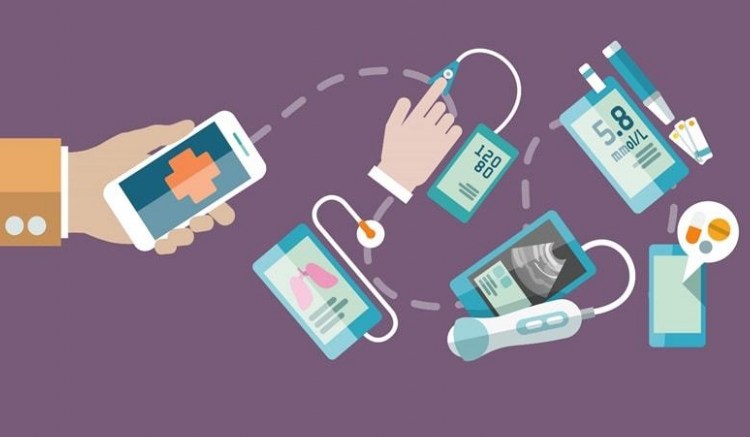Sign Up for Our
Updates
The World Health Organisation (WHO) defines post-COVID or long COVID as a "condition that occurs in individuals with a history of probable or confirmed SARS COV-2 infection with symptoms that last for at least three months and cannot be explained by an alternative diagnosis."
Months after the acute infection, a sizable percentage of those who are diagnosed with COVID-19 go on to develop persistent symptoms such as exhaustion, shortness of breath, and neurological problems.
Managing long COVID: Talk less, listen more

According to Ric Arseneau, an internal medicine physician and clinical professor at the University of British Columbia, it is not common for patients with long COVID to be examined by their primary care physicians. When they are examined, 'medical gaslighting' sometimes occurs, especially when inherent biological damage to the heart or other organs is not seen. A far too frequent response is scepticism that the patient's symptoms are real and have genuinely persisted past the end of the viral infection. Many people suffering from long COVID have been told that their symptoms are in their heads, the product of anxiety, or psychosomatically produced.
It's crucial for medical professionals to have unpressured time to consistently listen to patients, hear their experiences, and understand not just what is the matter with them but also what matters to them. However, many clinicians have observed this resource being systematically drained from the modern healthcare ecosystem.
It would be absurd to try to increase the productivity of musicians by having them play faster. Yet clinicians are often expected to follow precisely this kind of approach. Healthcare executives often bring in productivity targets, forcing an increase in the number of patients physicians must see each day. These targets can be so demanding that they limit office visits to fixed periods of as little as 10 or 15 minutes.
Dr Michael Sneller, Infectious Disease Specialist at the National Institutes of Health (NIH), is firmly opposed to this approach. According to Dr Sneller, "the most important thing is that you need to spend more than 15 minutes with the patient." The doctor strongly advised clinicians to "listen carefully to [patients] and study the symptoms to see if there's something there."
Dr Sneller's assertions are supported by research published in the Harvard Business Review. In a total joint replacement study, hospitals found that patients whose providers spent more time communicating about the issues had much shorter postsurgical inpatient stays. In fact, a far higher percentage of those patients could be discharged directly to their homes rather than nursing facilities or inpatient rehab centres.
Long COVID, Loooooooong Queues

Across the NHS, widespread workforce shortages and staff burnout are taking their toll on hard-working, overstretched professionals under sustained pressure.
Doctors fear that staff shortages, delayed surgery backlogs, and the existing strain on lung and heart services will limit the care the NHS can provide.
Professor Helen Stokes-Lampard, Chair of the Academy of Medical Royal Colleges, which professionally represents the UK's 240,000 doctors, said:
"The NHS knows this is a problem. It's very concerned about this. Long Covid is going to be a very substantial new burden on the NHS. It's working hard and setting up clinics. But there will be huge numbers of these cases, and it's clearly going to be dealing with this for years, absolutely for years."
Although the focus since the pandemic has largely been on elective (planned) care, many other areas of care are facing significant challenges, including mental health, general practice, community services, and social care. At best, longer wait times are inconvenient and uncomfortable for patients. At worst, they can entail a decline in health and an increase in the severity of illness. Patients may suffer while waiting for surgeries, have tumours detected later, and be left with their safety at risk due to lengthy delays in overcrowded emergency departments.
How can AI and Automation help with this?
If you're saving time, you're saving lives

Collection and dissemination of data are essential for patient care and the efficient operation of healthcare services. This is true whether we're talking about doctors receiving information from medical imaging and pathology labs, patients wanting information to take to specialists, or administrators making sure accurate information is received and sent promptly.
Numerous organisations are assessing the possibility of process automation to support data flow while the virus-related disruption persists. This ensures staff can work effectively with data, even when self-isolating. It also allows for more streamlined and efficient workflows, ensuring organisations can avoid overburdening healthcare workers. Crucially, process automation paves the way for higher-level analysis of data and emerging trends, which are key to COVID-19 contingency planning.
Artificial Intelligence (AI)
Beyond resource management, digital automation is used in various contexts. Clinicians can leverage AI on big data sets to seek out illness patterns or common traits. This is central to advancing preventative care, delivering smarter drug administration, and ensuring targeted utilisation of specialised staff.
AI-driven picture analysis can be used to diagnose COVID-19, track its development, and warn prescribing doctors of possible drug interactions and adverse effects. Furthermore, prescribing doctors can look at infection peaks and reallocate specialists who have the skills to deal with respiratory infections. In this way, healthcare workers can provide better, more patient-centred care while freeing up time that would otherwise be spent on less important tasks.
Intelligent Automation
Fax, paper, and out-of-date workflow systems are big sources of annoyance for GPs and clinicians. With fax still a primary mode of communication amongst healthcare professionals, the current status quo simply cannot keep up with the rapid speed of technology.
By contrast, those who adopt intelligent automation ensure clinicians have access to the latest records and pertinent information as soon as the patient enters the room. Intelligent automation gives healthcare organizations the ability to instantly compile information from emails, scanned faxes, specialist reports, and laboratory results.
Though many hospitals and healthcare facilities use electronic records management systems, they still need to handle data that comes in from outside organisations. Intelligent automation can retrieve essential information from a scanned document, email, or file and enter it into patient information systems. It can also recognise when new information is received and take the necessary actions without delay. As a result, nurses and administrative personnel will spend less time looking for test results and reports.
These technologies allow doctors to sit down with the patient for more than 15 minutes, listen to their symptoms, and figure out the root of the problem – steps that are especially crucial with conditions that are difficult to diagnose, such as Long COVID. AI and intelligent automation save time and ensure that errors brought on by distraction or exhaustion are greatly diminished. Additionally, these technologies free employees to concentrate on patient care rather than tedious administrative work.
This is what Alphalake Ai is all about. We aim to transform medical practices, clinics, and hospitals, enabling better patient outcomes and allowing healthcare professionals to spend more time with those in their care.
Alphalake Ai's automation services can help you spend far less time wrangling data and carrying out repetitive administrative tasks. If you or someone you know wants to swap error-prone manual handling for a smooth, automated experience that benefits patients and workers alike, get in touch with us today.
.jpg)


%20(1)%20(1).png)

